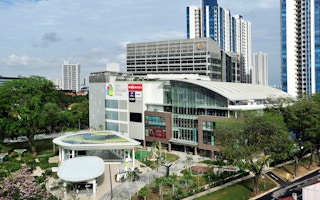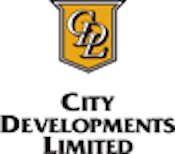A new study reviewing 40 commercial buildings in Singapore has revealed that green retrofitting saves 90 gigawatt hours of energy or S$24 million in costs, which makes for an attractive incentive for businesses to invest in green buildings.
The National University of Singapore (NUS) and Singapore’s Building and Construction Authority (BCA) led the study on a selection of hotels, offices, retail buildings and mixed developments that have undergone retrofitting to achieve Green Mark status. The Green Mark is the BCA’s flagship green building certification programme.
NUS and the BCA presented their findings at the ‘Breakfast Talk for CEOs’ session on Friday at the International Green Building Conference held at the Marina Bay Sands Expo and Convention Centre.
The talk centred on “the value of green to corporations”, and BCA chief executive officer Dr John Keung remarked on the strong and undeniable business case for improving existing buildings.
He said, “Both building owners and tenants can improve energy efficiency, cut down operating expenses and increase the capital value of their properties. This is supported by findings from our joint study with NUS, which showed that green office buildings can achieve an average reduction of 11.6 per cent in total operating expenses and an increase of 2.3 per cent in capital value, with an average payback period of about 6.3 years after the retrofit.”
According to the study, which was led by Professor Yu Shi Ming from the NUS Department of Real Estate, energy consumption decreased between six to 40 per cent and both landlords and owners noted significant reductions in their energy bills, amounting to 14 to 53 per cent.
The study was done in collaboration with real estate firms such as CBRE, Colliers International, DTZ, Jones Lang LaSalle, Knight Frank, RICS and Suntec Real Estate Consultants.
Making a pledge for green buildings
Public and private sector organisations also took part in the Green Tenant Pledge and the Green Partnership with Developers initiatives to commit to refurbishing existing offices and spaces the green way.
“With the third Green Building Master Plan, we are placing greater emphasis on how stakeholders can contribute to the drive for environmental sustainability, and this pledge and partnership with developers is aimed at encouraging tenants, building owners and corporations to join in to help sustain and accelerate the green building movement,” explained Dr Keung.
Nine firms and organisations signed the pledge: Autodesk Asia, BP Singapore, Dairy Farm Singapore, the National Climate Change Secretariat, NetApp Singapore, NTUC Fairprice Co-operative, J’s Salon, and Visa Worldwide.
Meanwhile, six developers agreed to the Green Partnership, namely Ascendas, CapitaLand, City Developments, Keppel Land, Lend Lease, and Mapletree Investments. They are now committed to get current and future tenants to help reduce the environmental impact of their shared building.
Francis Wong Hooe Wai, CapitaLand’s Green Committee chairman, shared their plans to implement green occupancy plans and conduct green improvement works.
He said, “The initiative also reinforces our ongoing efforts to educate our tenants on operating in a green manner through our green fit-out guides, green tips and energy efficient mock-ups. Our Green Mark Platinum malls, Bedok Mall, Bugis+, Jcube, Junction 8 and Westgate, adopt a Green Lease model where tenants are required to comply with operations and maintenance guidelines that will contribute towards the malls’ long-term sustainability.
Eco-Business.com’s special event coverage of the International Green Building Conference 2013 is brought to you by City Developments Limited (CDL).















